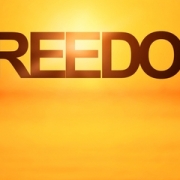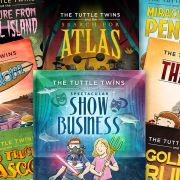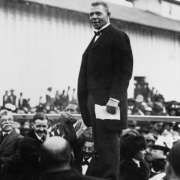Harper Lee’s marvelous 1960 novel, To Kill a Mockingbird, is now a Broadway play starring a dumber Jeff Daniels as widowed father and attorney Atticus Finch. Set in the Democratic Jim Crow south, specifically 1936 Alabama, the novel is a charming story of childhood set against the backdrop of segregation and overt racial hatred. It also contrasts youthful exuberance and traditional social mores, kindness and revenge, progressive education and home schooling, and civilization vs. mob rule.
Most importantly, great literature, including To Kill a Mockingbird, uses well conceived fictional characters to instruct its readers about the heights of human virtue and the depths of human depravity. Without it, the alternative is a society with no depth of soul. As literature teacher Lisa VanDamme tells us,
Extensive knowledge of the consequences of history’s ideas and actions, of the classics of literature and the characters and situations they describe; these are the raw material from which rational moral principles are drawn.
While Aaron Sorkin’s Broadway production combines some interesting stagecraft and great performances, it gives the racial aspect center stage. To that end, the story’s hero, Atticus Finch, is riddled with guilt, aloofness, indecision, and anger. In contrast, the original Atticus Finch was independent in every sense and never wavered in his convictions. Ostensibly, the intention was to make the production relevant to 21st sensibilities and audiences, which is a nice way of saying submission to today’s progressive philosophy of anti-west tribal group-think. For Sorkin and Daniels to tell their tale, Atticus had to be emasculated.
The Essence of a Father
Harper Lee’s masterpiece was an enlightening study of human nature. Her characterization of Finch illustrated the classical liberal values of self-reliance, compassion, tolerance, justice, and most of all, the essential role of a loving, dedicated father in the life of a child. When Atticus’ daughter Scout comes home from first grade, after being told by her new teacher that her father doesn’t know how to teach reading, she complains, “But if I keep going to school, we can’t ever read anymore.” Here, Atticus takes over.
That’s really bothering you, isn’t it. Yes, sir. Do you know what a compromise is, he asked? Scout replies, bending the law? No, an agreement reached by mutual concessions.
He continues to speak as an adult while respecting her childhood,
It works this way, he said. If you’ll concede the necessity of going to school, we’ll go on reading every night just as we always have. Is it a bargain? Yes, sir!
He then cements the deal with an understanding, and uses the adult language she had learned reading with her father every night,
By the way Scout, you’d better not say anything at school about our agreement. Why not? I’m afraid our activities would be received with considerable disapprobation by the more learned authorities.
This is the stuff of civilization, the trader principle in action. Yet, there were very few examples of fatherly affection or life lessons in the play – the children were played by young adults. Lee’s novel was once popular reading among American junior high and high school students. Like Scout and her brother Jem had a virtuous moral character to aspire to, so did America’s teenagers. In fact Atticus, in partnership with the Finch’s African-American housekeeper Calpurnia (whose motherly wise counsel was also omitted), gave young readers an emotional experience of admiration for man’s highest potential. Sorkin and Daniels chose to offer a more “mature” version.
The Virtue of Virtue Signaling
Throughout the novel, Atticus respects the life experiences of others. He is also aware of a justice system whose participants include flawed characters. Although averse to criminal law, he is asked to defend a black man against a fraudulent rape charge of a white woman. After interviewing the defendant, Tom Robinson, he agrees to take the case because he knows Robinson, also a loving and dedicated father, is an innocent man. He also knows Tom is likely to be convicted and his own family ostracized. In the play, Daniel’s portrays Atticus as man too naïve and confused to know this. But why?
A rhetorical question to be sure. Sorkin took an American treasure and turned it into a vehicle for race hustling. The rationale is economic inequality and crime statistics disparities between whites and blacks in America. White privilege and its systemic racism (whatever that means) are the villain, and it can’t be their fault, they’re progressive elites after all. Yet the root cause of progressivism is hubris, and its mission is an enlightened society planned by their experts. As such, in the early 20th century, it became a popular idea to weed out the undesirables according to their Darwinesque fitness tests. Their scientific application of this is eugenics, and it is justified as women’s health care. Because America’s northern capitalists won the Civil War for the abolition of slavery over the agrarian feudal lords of the south, this seemed like a pretty good alternative, and the rationale for Jim Crow segregation.
Despite this oppression, economist Thomas Sowell observes that “The poverty rate among black families fell from 87 percent in 1940 to 47 percent in 1960, during an era of no anti-poverty programs.” Two parent black families were the norm, yet the resulting “systemic racism” of 1965s progressive Great Society now manifests itself in postmodern urban plantations that have the same attributes as antebellum southern plantations – dilapidated housing, government dependence, violent surroundings, despair, and broken families.
Atticus Faces a New Collectivist Threat
This is where Atticus Finch and Tom Robinson come in. The greatest social problem facing America today is fatherless children, and it is never discussed. Not only do many young boys have no loving and dedicated father at home, masculinity and self-reliance are marginalized in favor of victimhood. This, despite the fact that America today is the most open, prosperous, and opportunity laden society in the history of the world. Heroes, real and fictional, only show up in comic book movies, professional sports, and narcissistic politicians. What America really needs are more classical liberal heroes, but Sorkin and his ilk have no use for self-reliance and tolerance.
Otherwise, the Broadway show has some wonderfully entertaining and worthwhile moments. The script included a lot of very funny dialogue, as did the novel, but in the end, the Mockingbird symbolizes innocence. Tom Robinson was innocent, yet killed, and there were other innocent characters in the novel who enhanced the lives of those around them, especially the reclusive neighbor Boo Radley, who faced obstacles rooted in collectivist thinking. Not the least of which were the two mobs, the one that threatened Atticus while trying to lynch Tom Robinson the night before the trial, and the jury that convicted Tom Robinson at the end of the trial. Scout was able to disarm the first mob by appealing to a couple of its members as individuals.
Unfortunately, despite his best efforts, Atticus was not able to dissuade the jury. He had to deal with them collectively and couldn’t overcome their collective peer pressure. But this is no reason for Sorkin and Daniels to form another mob to kill the mockingbird by hanging undeserved guilt around his neck, and maybe yours.













